Halal Cosmetics Market Expected to Reach $171.7 Billion by 2033
The global halal cosmetics market was valued at $44.7 billion in 2023 and is projected to reach $171.7 billion by 2033, growing at a CAGR of 14.5% from 2024 to 2033.
Halal cosmetics are beauty and personal care products formulated according to Islamic law. Manufacturers adhere to specific recommendations mentioned in Islam, ensuring that they do not have ingredients that can be taken into haram consideration (forbidden), including alcohol, red meat-derived substances, and other prohibited substances. Additionally, Halal cosmetics are regularly cruelty-loose, meaning they’re not examined on animals. The production manner of Halal cosmetics additionally includes ethical sourcing and production practices. Halal cosmetics cater to the desires and choices of Muslim consumers who are looking for products that align with their nonsecular beliefs and values.
Halal cosmetics should emphasize their broader attraction beyond religious issues. Halal cosmetics can be visible as merchandise that adheres to moral, sustainable, and smooth beauty principles, catering to clients who prioritize transparency, cruelty-loose elements, and environmentally friendly practices. While rooted in Islamic ideas, Halal cosmetics offer a holistic technique to splendor that resonates with a diverse range of consumers in search of merchandise aligned with their values of social obligation and personal well-being.
Growing patron cognizance of health and wellness drives call for private care and beauty products that provide functional blessings past aesthetics. Products formulated with natural, organic, and plant-based totally ingredients, as well as the ones focused on precise fitness worries which include pimples, sensitivity, or getting older, are more and more popular.
The rise of e-commerce structures and virtual channels gives new opportunities for manufacturers to attain purchasers immediately, offer personalized reports, and acquire treasured consumer statistics. E-commerce enables greater convenience, accessibility, and flexibility in buying private care and splendor merchandise, riding an increase in online income channels.
Regulatory requirements and standards influence product development, production techniques, and advertising and marketing techniques inside the non-public care and beauty enterprise. Compliance with regulations related to product protection, labeling, and factor restrictions is essential for the marketplace to get admission and for the client to consider.
The personal care and splendor industry is more and more globalized, with corporations expanding their presence into new markets global. Emerging markets in Asia, Latin America, and Africa present great increase possibilities due to rising disposable earnings, urbanization, and growing purchaser cognizance and demand for non-public care products.
Continuous innovation in product formulations, ingredients, and manufacturing approaches drives product improvement and differentiation in the private care and splendor industry. Advancements in regions together with biotechnology, nanotechnology, and virtual generation contribute to the advent of new and improved products.
E-commerce systems provide a huge array of private care and splendor merchandise from various brands, such as mounted companies and rising indie manufacturers. Consumers have to get admission to a much broader selection of merchandise, allowing them to discover new manufacturers, developments, and innovative formulations.
E-commerce systems make private care and splendor products comfortably reachable to consumers worldwide, no matter their geographical region. This accessibility allows purchasers to browse, evaluate, and buy merchandise from the consolation of their houses or on the cross using their mobile devices.
Economic increase in many Asian international locations has led to a boom in disposable earnings among customers. As people have more purchasing electricity, they’re willing to spend more on non-public care and beauty merchandise to beautify their appearance and well-being. Urbanization and changing existence in Asia have resulted in an elevated focus on private grooming and splendor standards. Urban dwellers, particularly younger generations, are more willing to put money into non-public care and beauty products to maintain a polished appearance in expert and social settings.
Key Findings of the Study
- By product type, the personal care products segment is expected to experience rapid growth in the halal cosmetics market.
- By application, the hair care segment is projected to grow at a high CAGR during the forecast period.
- By distribution Channel, the online segment is the largest segment based on revenue in 2023.
- Region-wise, MEA is the largest segment based on revenue in 2023 in the halal cosmetics market.
